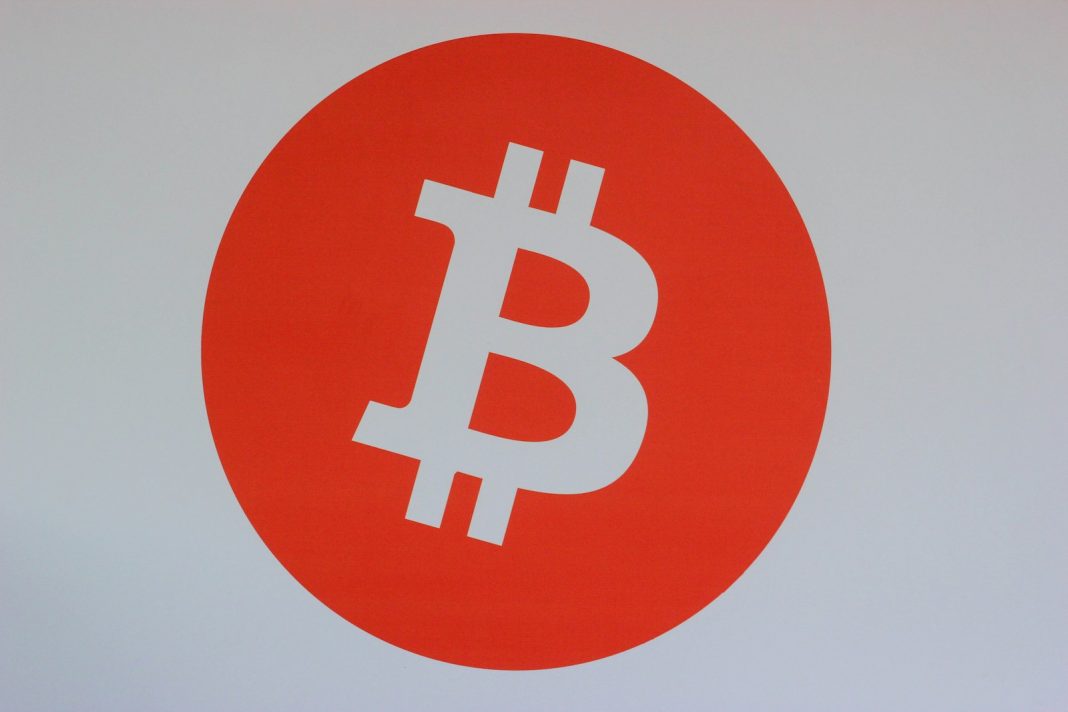Welcome to the world of Bitcoin – a realm that may seem complex at first, but holds exciting opportunities for learning and growth. Have you ever wondered what makes this digital currency tick or why it’s become such a buzzword around the globe? Let’s dive in and explore this innovative concept, especially through the lens of educating our younger generation.
Explanation of Bitcoin
At its core, Bitcoin is a form of digital currency, known as cryptocurrency, that operates without the central regulation of banks or governments. Instead, it relies on a decentralized system where transactions are recorded on a public ledger called a blockchain. It’s like having magical internet money that can be sent or received anywhere in the world, any time of day, without needing to go through a traditional bank. The principles that underpin Bitcoin include decentralization, transparency, and peer-to-peer technology, making it a truly unique form of money.
Importance of Financial Literacy
Now, why should we bother introducing concepts like Bitcoin to children? The answer lies in the profound impact that financial literacy can have on a child’s future. Learning about money and how it works from a young age sets the foundation for savvy financial decisions down the line. It’s about equipping kids with the tools they need to navigate an increasingly complex financial world with confidence. By including Bitcoin in their financial education, we’re not just teaching them about currency, but also about the emerging technologies that are shaping our economic landscape.
Understanding Bitcoin and its principles isn’t just an intellectual exercise – it’s a stepping stone toward long-term financial well-being. With technology evolving at breakneck speed, today’s kids will grow up in a world where digital currencies may become as commonplace as smartphones. Introducing them to these concepts early helps demystify the digital economy and prepares them for the future.
Understanding Bitcoin
Have you ever wondered what Bitcoin is, but found all the technical jargon a bit too confusing? Let’s break it down into bite-sized pieces that are easier to chew. Imagine if you had a type of money that was just for buying things on the internet and didn’t live in any one country or bank. That’s kind of what Bitcoin is like.

Simplified Explanation
Bitcoin is like digital pocket money; you can’t touch it like coins or notes, but you can use it to buy stuff online. It’s special because no single person or place is in charge of it. Think of it as a club where everyone has a say, rather than one person calling all the shots. This idea is called being ‘decentralized’, which means it’s like a big group project where everyone helps out a little bit.
Comparison with Traditional Currency
Now, how is Bitcoin different from the money you might have in your piggy bank? Well, regular money, like dollars or euros, is made by governments and kept track of by banks. If you want to buy a toy, you give the store some coins, and then they’re gone from your piggy bank. But with Bitcoin, there are no coins. It’s all numbers on computers. And instead of a bank making sure everything is fair, a huge network of computers does that job. They use math problems to make sure no one cheats, which is pretty cool!
Understanding this digital currency can be a bit like learning a new game. Just as you’d learn the rules of soccer or chess, grasping the basics of Bitcoin sets you up for a whole new world of digital play. With that knowledge, kids can not only participate but also innovate in a future that’s sure to be filled with cryptocurrencies and other exciting technologies.
Benefits of Bitcoin Education
In the digital age, it’s imperative that children not only keep pace with technology but also understand the financial dimensions that shape our world. So, how does learning about Bitcoin contribute to this knowledge? Let’s delve into the ways Bitcoin education can enhance technological awareness and foster financial responsibility in the younger generation.
Technological Awareness
The concept of Bitcoin is woven with technological threads, from blockchain to digital transactions. Explaining Bitcoin’s mechanisms to children sparks curiosity about how technology operates beyond their favorite games and apps. It’s like giving them a peek behind the digital curtain; they begin to see the internet as more than just a space for socializing or entertainment—it’s also a marketplace and a platform for innovation. This understanding lays the groundwork for them to navigate an increasingly digital future with confidence and competence.
Moreover, by grasping the basics of how Bitcoin works, kids are introduced to concepts such as peer-to-peer networking, encryption, and the idea of consensus algorithms, which are central to maintaining the integrity and security of digital currencies. These are the same building blocks that support many other areas of technology, meaning that Bitcoin education doesn’t just teach them about currency—it opens doors to broader tech literacy.
Financial Responsibility
When children learn about Bitcoin, they’re learning about more than just a currency; they’re learning about the value of money in a format they can relate to. This understanding can transition into real-world skills like saving and investing. Just as they might save up in-game currency for a virtual item, they can apply these principles to save real money for future goals. Discussing Bitcoin can be a springboard into conversations about budgeting, the importance of saving, and even the basics of investing.
What’s more, Bitcoin has a unique nature due to its volatility and the fact that it’s not backed by a physical commodity or government. This presents an excellent opportunity to teach kids about market dynamics and the factors that influence the value of assets. By encouraging them to track the price of Bitcoin, for example, they can learn about supply and demand, market sentiment, and economic events—all foundational concepts in financial education. The earlier kids get comfortable with these ideas, the better equipped they’ll be to make informed financial decisions as adults.
It’s also worth noting that Bitcoin can help instill a sense of ownership and autonomy. With traditional money, children are often passive participants. They watch adults transact and manage finances. Bitcoin, by contrast, can be more accessible and hands-on, even for young people. This can encourage them to take an active role in managing their digital wallets, fostering a sense of independence and responsibility that can extend to other areas of life.
Ultimately, educating kids about Bitcoin is not just about the currency itself. It’s about equipping them with a versatile set of skills and knowledge that will serve them well in a future where digital transactions and currencies will likely play a significant role. Whether or not Bitcoin remains a major currency, the underlying technology and the financial principles it represents are here to stay.
Bitcoin-themed Games and Activities
Interactive learning is a cornerstone of effective education, especially when it comes to complex subjects like Bitcoin. By incorporating games and activities into the learning process, children can discover the fascinating world of cryptocurrency while having fun. This approach not only maintains their interest but also helps them retain information more effectively. Let’s explore how games can transform the abstract concepts of Bitcoin into engaging experiences for young minds.
Interactive Learning
Imagine turning the concept of Bitcoin into an adventure. When children engage in play, they’re more receptive to new ideas and concepts. Interactive learning leverages this by creating a hands-on experience. It could be as simple as a board game that simulates Bitcoin transactions or an app that introduces basic crypto terms through puzzles and challenges. The goal is to make the learning process so entertaining that kids hardly realize they’re absorbing complex information about digital currencies.
Examples of Games
Now, let’s delve into some specific examples of Bitcoin-themed games and activities designed for children:
- Bitcoin Mining Adventure: This game could take the form of a mobile app where players run their virtual mining operation. They learn about the mining process, solve puzzles to “mine” bitcoins, and manage resources to keep their operation running efficiently.
- Crypto Quest: In a board game setting, children navigate a map filled with challenges and quizzes related to cryptocurrency. Each correct answer or completed task earns them a bit of digital currency. The goal is to accumulate enough to reach the end of the quest, teaching them about earning, saving, and spending within the Bitcoin ecosystem.
- Wallet Watch: An online simulation game that teaches kids about keeping their cryptocurrency secure. They learn about the importance of private keys, how to spot phishing attempts and good practices for digital safety.
- Trade Tycoon: A more advanced game where players trade virtual assets in a simulated market environment. It can help older kids understand market dynamics, investment strategies, and the impact of news on cryptocurrency prices.
These games are just starting points. Creative educators and developers can build upon these concepts to create an array of tools that introduce children to the intricacies of Bitcoin in an enjoyable manner.
While playing these games, kids won’t just learn about Bitcoin; they’ll also develop critical thinking skills, learn to strategize and understand the value of patience and long-term planning. These are invaluable life lessons that will serve them well beyond the digital economy.

In closing this section, remember that the key to successful Bitcoin-themed games and activities lies in their ability to simplify complex concepts and present them through relatable, interactive scenarios. As children navigate through these playful learning experiences, they’ll gain a solid foundation in cryptocurrency and be better prepared for the financial nuances of the digital age.
Navigating Ethical and Safety Considerations
As we delve into the digital realm with our youngest learners, it’s crucial to balance the fun of Bitcoin-themed games with serious conversations about security and ethics. But how do we approach such weighty topics with children? Let’s explore.
Security Awareness
Teaching children about the potential risks that come with handling cryptocurrencies is as important as the ABCs of Bitcoin itself. Just as we encourage kids to wear helmets while biking, we must equip them with the tools to navigate the cryptocurrency world safely. Start by explaining the basics of online privacy — why sharing passwords is a no-no, just like keeping a house key safe. Make it clear that just because Bitcoin is virtual doesn’t mean it’s play money; it’s as real as the cash in their piggy banks.
Introduce them to the concept of digital wallets and the importance of secure passwords. Use analogies they understand: a digital wallet is like a special toy box that needs a secret code to open. And just like they wouldn’t want someone taking toys from their box, they need to keep their Bitcoin safe too. Encourage them to think critically about phishing scams by presenting scenarios in a game format – “What would you do if…?” This interactive approach can help them learn to recognize and avoid potential threats.
Ethical Implications
When it comes to Bitcoin, the conversation isn’t just about security; it’s also about using this technology responsibly. Discuss the concept of ethical behavior in simple terms. For instance, explain that just like we return a lost wallet we find on the playground, we must be honest in the way we acquire and use Bitcoin. Emphasize the importance of fairness and integrity, whether it’s in earning Bitcoin through games or spending it wisely.
It’s also essential to talk about the environmental impact of Bitcoin mining. While this might seem like a complex topic for kids, it can be broken down into relatable terms. Compare it to leaving the lights on all day — it uses energy, and too much of it can be wasteful. Help them understand that every technology comes with a cost and that being environmentally conscious is part of being responsible digital citizens.
In teaching these principles, we’re not only discussing Bitcoin; we’re laying the groundwork for values that will serve children well throughout their lives. By instilling an awareness of security and ethics, we’re helping them navigate not just the financial world but any space where technology plays a role.
Conclusion and Call-to-Action
As we wrap up our journey through the world of Bitcoin-themed games and activities for kids, let’s pause to reflect on what we’ve learned. This blog post has underscored the importance of introducing children to financial literacy and technological awareness through the lens of Bitcoin—a concept that may shape their future in ways we are only beginning to understand.
Recap of Key Learnings
The journey through Bitcoin for kids began with a basic explanation of this digital, decentralized currency. We compared it to traditional money, explaining how Bitcoin differs in its operation and value. As we navigated through the significance of financial literacy, we realized that education in this area equips children with skills that extend far beyond mere money management. It prepares them for a future where digital transactions are commonplace, fostering a sense of financial responsibility from a young age.
Our exploration included fun and interactive ways to learn about Bitcoin, emphasizing games and activities that teach while they entertain. These experiences are crucial as they not only provide understanding but also inspire curiosity and a desire to learn more. We also discussed the importance of security awareness and ethical considerations, highlighting how these discussions contribute to developing responsible digital citizens who can navigate the complexities of the online financial landscape.
Encouraging Further Exploration
To keep the momentum going, it’s essential to encourage further exploration of Bitcoin and its underlying technologies. Here are some suggestions for resources and activities that can help sustain your child’s interest:
- Visit educational websites geared toward kids that offer interactive tutorials on cryptocurrencies and blockchain technology.
- Check out books from the library that introduce financial concepts and stories about money in an age-appropriate manner.
- Encourage hands-on learning by setting up a mock digital wallet for play and teaching kids about the value of digital money through simulation.
- Participate in online coding classes or workshops that include lessons on creating simple blockchain-based applications.
- Explore board games and card games that focus on economic principles and can be adapted to include elements of cryptocurrency.
Remember, the goal is to make learning continuous and enjoyable. By turning Bitcoin into a game or a story, you’re likely to spark a lasting interest. As children grow, their understanding of these concepts will mature, and they’ll be better prepared to apply them in real-world scenarios. Let’s empower the next generation with the knowledge and tools they need to thrive in a digital economy.
With curiosity as their compass and knowledge as their guide, children can embark on an exciting adventure in the world of Bitcoin. Start the conversation today, and who knows? The little gamer or


